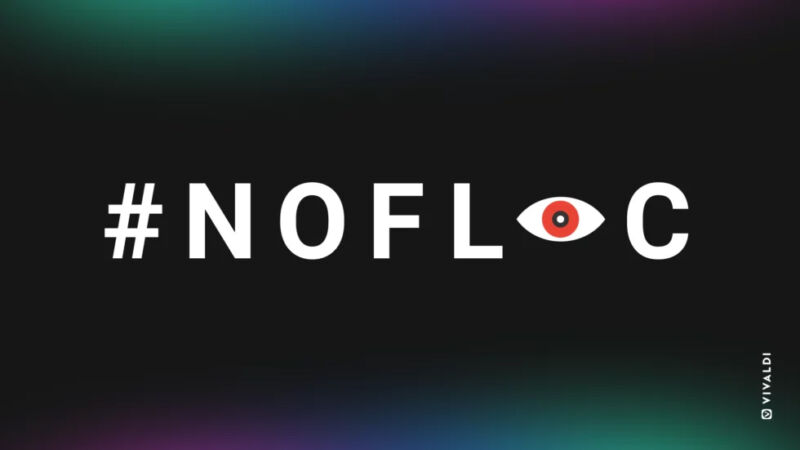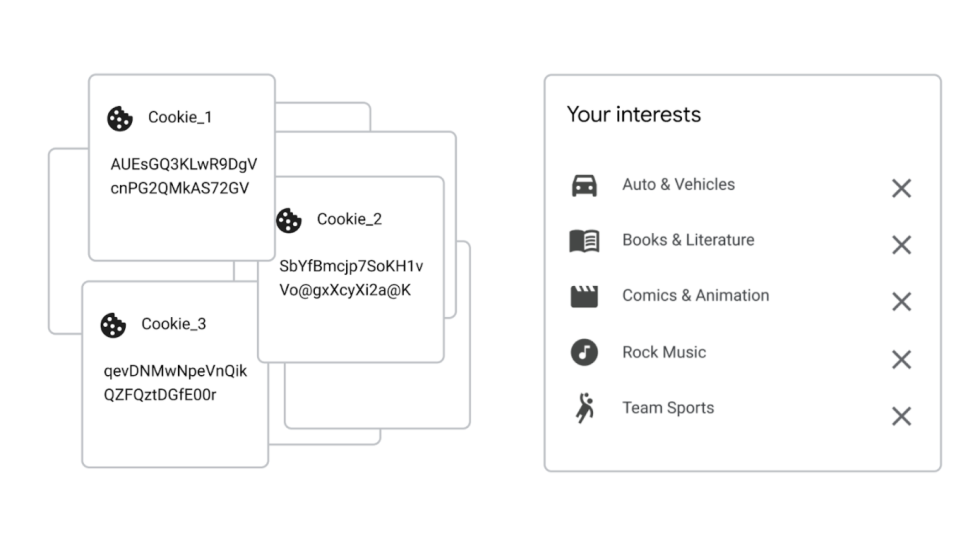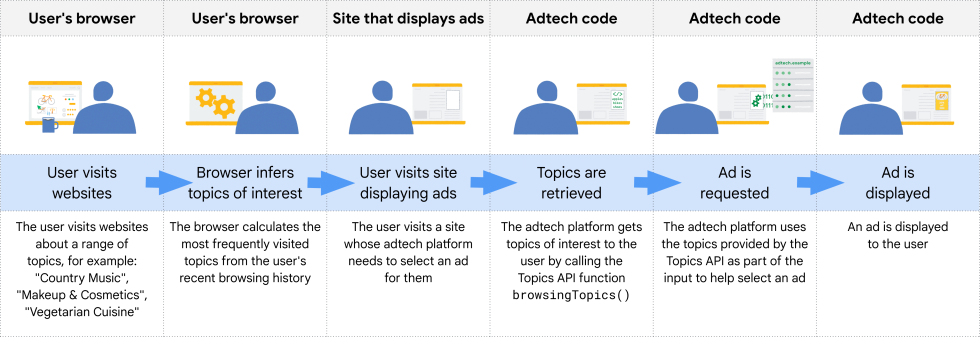
After widespread opposition from the rest of the Internet, Google is killing its "FLoC" plans.
The company wants to get rid of the third-party web cookies used for advertising tracking, so it proposed FLoC ("Federated Learning of Cohorts"), which would have let its browser track you for the benefit of advertising companies. With FLoC dead, Google is floating another proposal to track users for advertisers. This time, the system is called the "Topics API." There are currently no implementation details, but Google has posted info about the Topics API in a blog post, in developer docs, on a GitHub page, and on a "Privacy Sandbox" site.
Google's Topic API plans are just now being shared with the world, and the company says the next step is to build a trial implementation and gather feedback from the Internet. Hopefully, the EFF, Mozilla, the EU, and other privacy advocates that spoke out about FLoC will chime in on Google's new plan. The Topics API gives users more control over the tracking process, but if your core complaint was that browser makers should not build user tracking technology directly into the browser for the benefit of advertising companies, you'll still find fault with Google's plan. Google is the world's biggest advertising company, and it's using its ownership of the world's biggest browser to insert its business model into Chrome.

So what's the difference between the Topics API and FLoC? Both let the browser track you and your interests and report those interests to advertisers when they ask, leading to ads with higher click-through rates. Topics will give users a bit more control over how this process happens and should make users less individually identifiable. Google says that the Chrome settings will show users which topics the browser has detected they're interested in, and users will be able to delete topics they don't want to see ads for. Most importantly, Google says users and sites will be able to opt out of the Topics API.
FLoC worked by grouping people with similar browsing histories together into a "cohort" and would make assumptions about that group for advertising purposes. One of the concerns was that these groups could be small enough to individually track users, which is what third-party cookies do today. Google says that Topics should be broad enough to ensure that users are not individually tracked and to further reduce fingerprinting. Google says that "5 [percent] of the time, a random topic (chosen from the full set of topics) is provided."
A full list of initial topics is available here; it includes categories such as "Football," "Politics," and "Software." Google says topics will be public, human-curated, and scoped to avoid sensitive areas like ethnicity or sexual orientation. Behind the scenes, the system will work by mapping website hostnames to various topics, and as you browse the web, your browser will build a local list of your topics. When an advertiser asks for a list of topics, the browser will serve up one topic from each of the past three weeks of usage. Google is proposing that advertisers will "only receive topics they've observed" from other sites. So if you visit a knitting website and it has Google ads, only other sites with Google ads would know about your knitting habits.

Everything here is an improvement over the current free-for-all of third-party cookies, which can individually track users as they move across the web. Other browser vendors have dealt with the issue by completely blocking third-party cookies by default; Mozilla did so in 2019, and Apple's Safari started in 2020. The only reason Chrome hasn't followed suit is because 80 percent of Google's revenue comes from advertising, and the company wants an alternative in place to protect its business before it enables a "privacy sandbox" for cookies.
We're still eagerly awaiting reactions from across the Internet, but given how far away Google's proposal still is from other browser vendors, it's not clear that privacy advocates even need to make updated statements. The EFF's FLoC statement took issue with any form of user tracking, which would seem to still apply to the Topics API.
"[Google's] framing is based on a false premise that we have to choose between 'old tracking' and 'new tracking,'" the EFF said about FLoC. "It’s not either-or. Instead of re-inventing the tracking wheel, we should imagine a better world without the myriad problems of targeted ads."
Google is targeting Q3 2023 for the removal of third-party cookies from Chrome, though that timeline has already been pushed back and will depend on how this trial goes. The company says it will post monthly updates at privacysandbox.com/timeline/.
reader comments
211